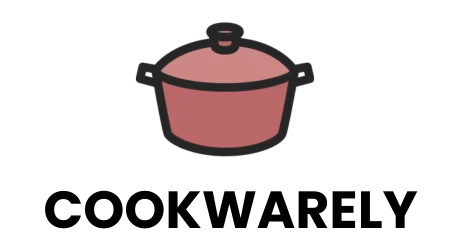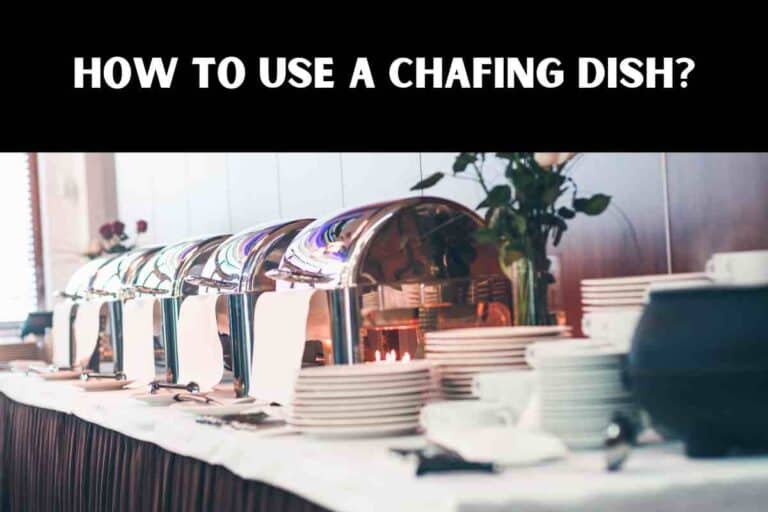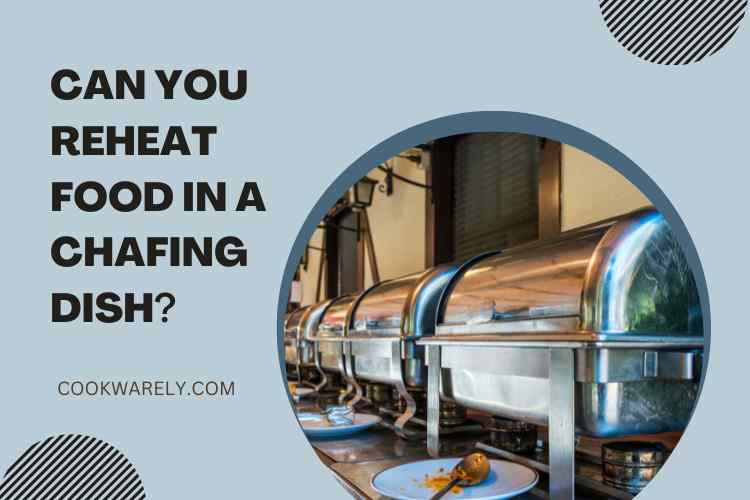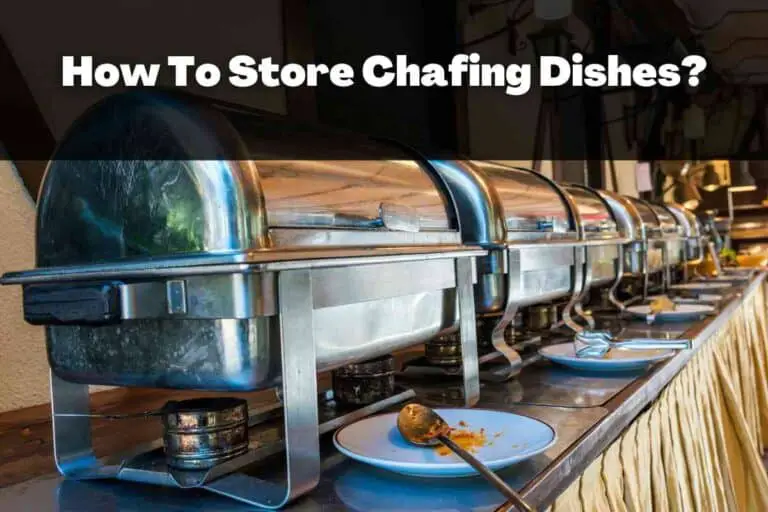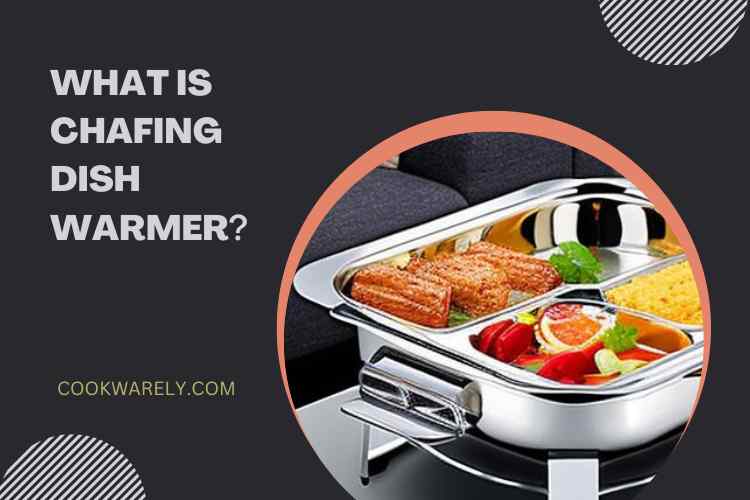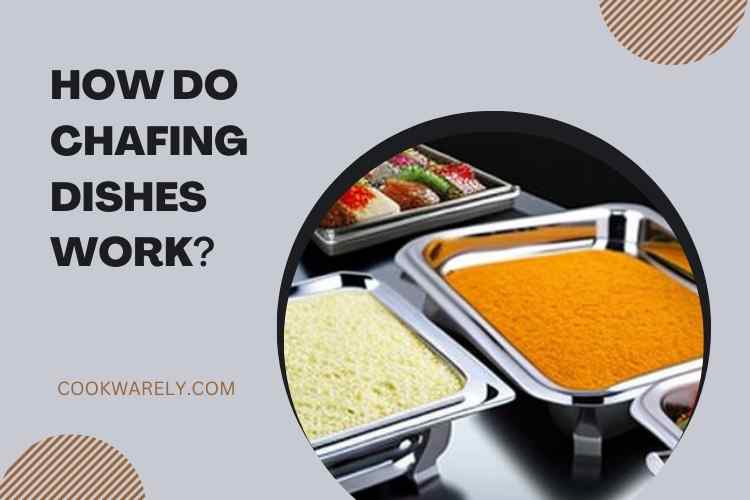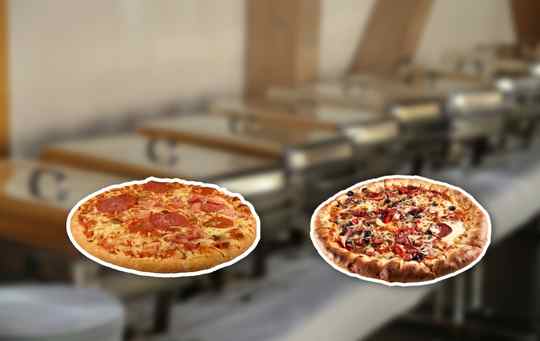How Hot Do Chafing Dishes Keep Food?
You’ve probably seen chafing dishes if you’ve ever attended a fancy event or catered a party. These stainless steel pots with wire racks and a fuel burner underneath are designed to keep food hot and ready to serve. But just how hot do chafing dishes keep food?
Quick Answer: Chafing dishes are designed to keep food hot and ready to serve. They can maintain a temperature of around 150-165°F (65-74°C), which is above the minimum recommended serving temperature for hot foods.
However, the actual temperature of the food may vary depending on the type of chafing dish, the heat source, and the ambient temperature.
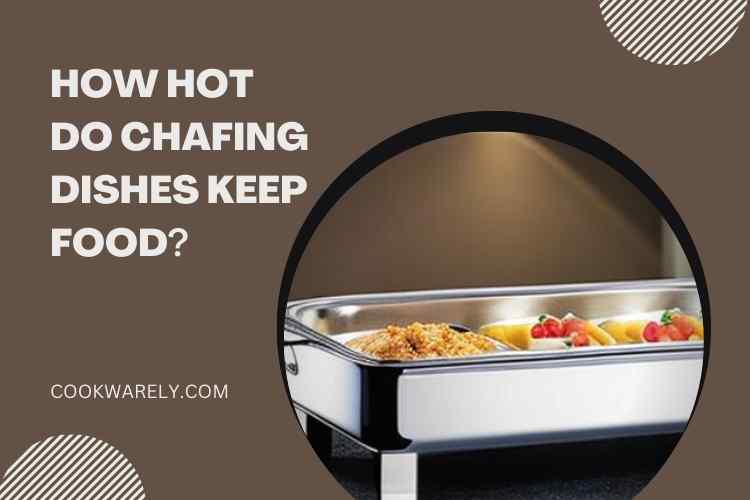
How do Chafing Dishes work?
Chafing dishes use a heat source to warm the food in the pot. The most common heat source is a fuel burner, which can be either electric or wick-based.
The burner is placed underneath the pot and heats the wire rack, which warms the food.
Some chafing dishes also have a water pan beneath the wire rack. The water pan helps to regulate the heat and prevents the food from drying out.
The Ideal Serving Temperature for Hot Foods
According to the U.S. Food and Drug Administration (FDA), hot foods should be kept at a minimum temperature of 140°F (60°C) to prevent the growth of harmful bacteria.
This is especially important for dishes like meats, casseroles, and soups more prone to bacterial growth.
Chafing Dish Temperature
A chafing dish is designed to keep food warm at a consistent temperature for extended periods of time. The ideal temperature for a chafing dish is between 150°F to 165°F (65°C to 74°C) to ensure that the food stays safe and does not dry out or overcook.
It’s important to use a thermometer to monitor the temperature of the food in the chafing dish and to stir it occasionally to prevent hot spots or uneven heating. It’s also crucial to follow proper food handling and storage guidelines to prevent the growth of harmful bacteria.
How Hot Do Chafing Dishes Keep Food?
So, back to the question: how hot does chafing dishes keep food? Chafing dishes generally maintain a temperature of around 150-165°F (65-74°C).
This is comfortably above the minimum recommended serving temperature for hot foods and should keep your dishes safe to serve for several hours.
However, it’s important to keep in mind that the actual temperature of the food will depend on various factors, including the type of chafing dish, the heat source, and the ambient temperature.
For example, if you’re using a wick-based burner in a cold room, the food may not stay as hot as it would with an electric burner in a warm room.
My Experience with Chafing Dishes
I’ve used chafing dishes on several occasions as a caterer and guest at events. One memorable experience was at a wedding reception, where I kept the buffet tables stocked with hot dishes.
We used electric chafing dishes with water pans to keep the food at the ideal temperature.
The dishes were placed on the tables along with serving utensils, and guests could help themselves to the various dishes throughout the reception.
One of the great things about chafing dishes is that they allow guests to serve themselves, which is especially convenient for events with many people.
And as long as you keep an eye on the fuel and ensure the temperature stays within the safe range, the food should stay hot and delicious.
Tips for Using Chafing Dishes
Here are a few tips to keep in mind when using chafing dishes:
- Ensure the food is already hot when put in the chafing dish. Cold food will bring down the temperature of the dish and may not reach the safe serving temperature.
- Use a thermometer to check the temperature of the food regularly. This will help you ensure that it stays within the safe range.
- Keep the chafing dish covered as much as possible to retain heat.
- Use the appropriate heat source for the dish and the ambient temperature. For example, if you’re using a wick-based burner in a cold room, you may need more fuel to keep the food hot.
- If you’re using an electric burner in a warm room, you may need less heat to prevent the food from getting too hot.
- Replenish the fuel as needed to keep the temperature consistent. If the fuel runs out, the temperature of the food will drop, potentially causing it to fall below the safe serving temperature.
- Avoid overcrowding the chafing dish. If you pack the dish too full, it will be harder for the heat to circulate, and the food may not stay as hot.
- Don’t leave the food in the chafing dish for too long. The FDA recommends that hot foods be kept at the appropriate temperature for no more than four hours. After that, the food should be discarded to prevent the growth of harmful bacteria.
Conclusion
Chafing dishes are a great way to keep food hot and ready to serve at events. While they’re not designed to cook food, they can maintain a temperature of around 150-165°F (65-74°C), above the minimum recommended serving temperature for hot foods. Just be sure to follow the tips above to ensure that your food stays safe and delicious.
FAQs
Do Chafing Dishes Keep Food Hot?
Yes, chafing dishes are designed to keep food hot. They use a combination of direct heat from a fuel source (such as a chafer fuel canister) and a water bath to maintain a consistent temperature, allowing food to stay warm throughout an event or meal service.
How Long Can You Keep Food Warm in a Chafing Dish?
The length of time you can keep food warm in a chafing dish depends on various factors, including the type of fuel used, the dish’s design, and the surrounding environment. Typically, chafing dishes can keep food warm for 2 to 6 hours. However, it’s important to monitor and replenish the water and fuel as needed to ensure the food stays at a safe serving temperature.
Chafer Food Warmer
A chafer food warmer, often referred to as a chafing dish, is a specialized piece of catering equipment used to keep prepared food warm during events, buffets, or catering services. It consists of a pan for holding food, a frame, a lid, and a heating element, which can be fueled by canned heat or electricity.
Chafers for Catering
Chafers are essential equipment for catering services. They come in various styles and sizes to accommodate different types of dishes and serving needs. Chafers are commonly used in catering to maintain the temperature of hot dishes like soups, stews, and pasta, ensuring that food remains at a safe and appetizing serving temperature throughout an event.
How Do Chafing Dishes Work?
Chafing dishes work by using a combination of direct heat from a fuel source and a water bath to maintain a consistent temperature, keeping food hot during events or catering.
Chafing Dish Heat
Chafing dishes generate heat primarily through chafer fuel canisters or electric heating elements, which are placed beneath the dish and warm a water pan, indirectly heating the food.
How Does Chafing Dish Work?
A chafing dish works by utilizing a heating element beneath a water pan, which indirectly heats the food, keeping it warm for extended periods during catering or buffet service.
Chafing Dish Usage
Chafing dishes are used to maintain the temperature of prepared food items, ensuring they stay hot and safe to eat during events, buffets, or catering services.
How Does a Chafing Dish Work?
Chafing dishes work through a water bath and a heat source, typically fueled by canned heat or electricity, to keep food hot and ready to serve during catering or buffet events.
How to Use Chafing Dishes to Keep Food Warm
To use chafing dishes effectively to keep food warm, fill the water pan, light the fuel source, and place the food pan on top to create a heated, moist environment that maintains food temperature throughout your event or buffet service.
